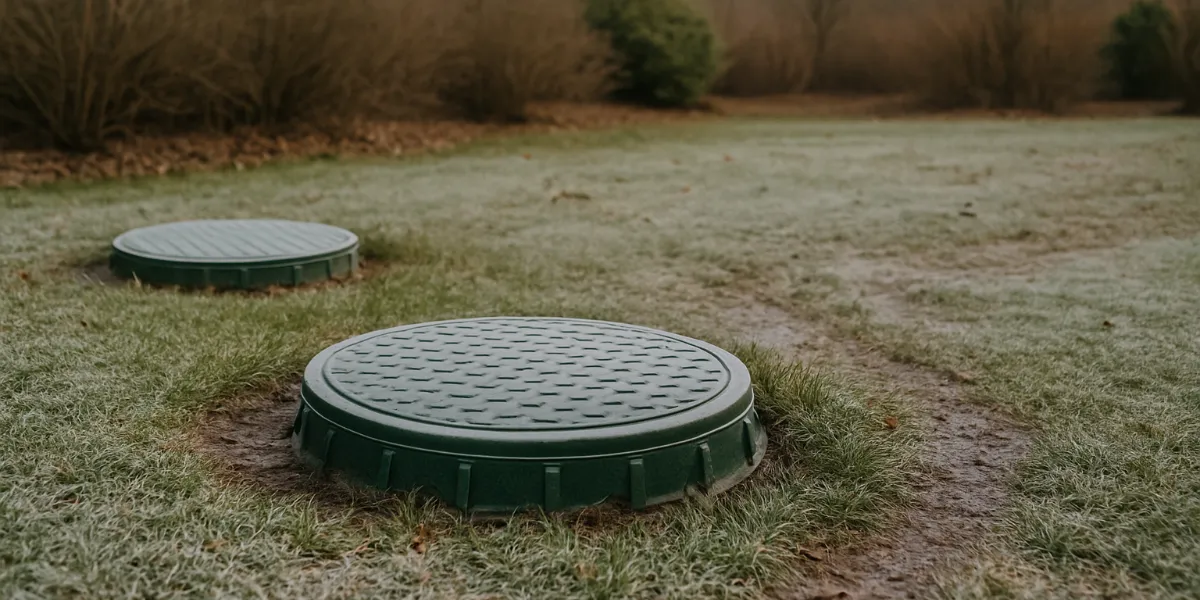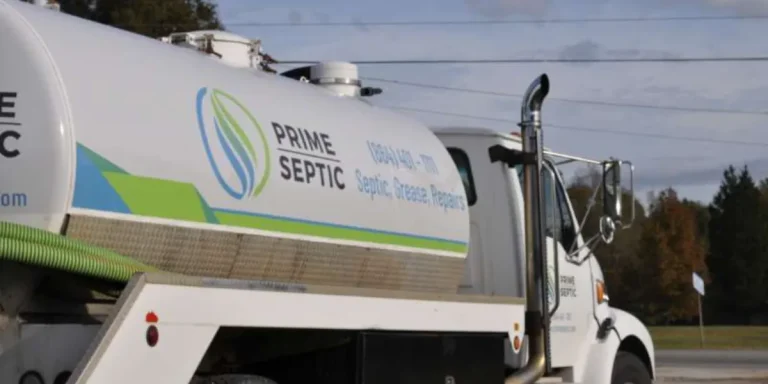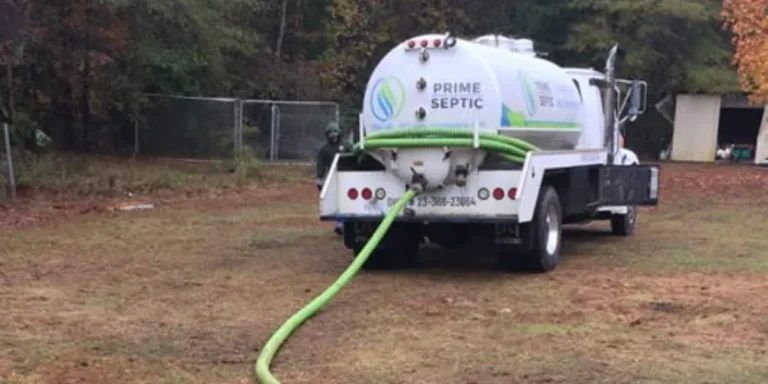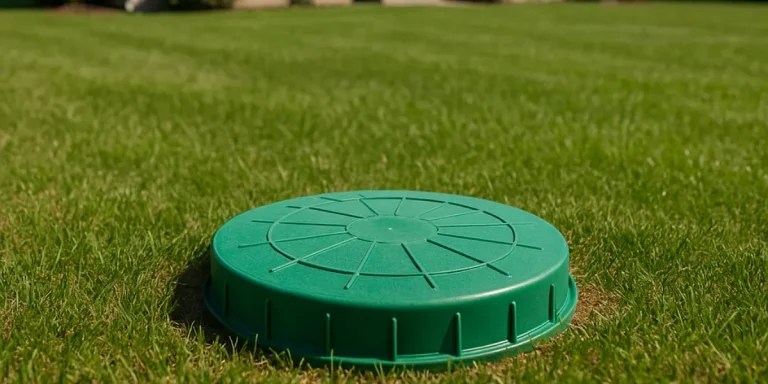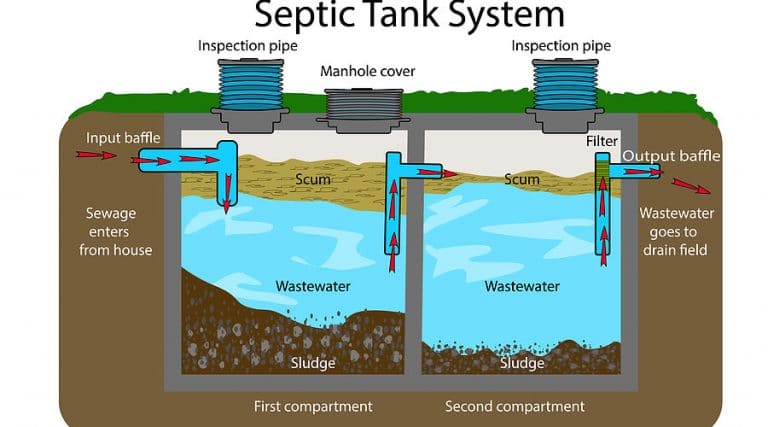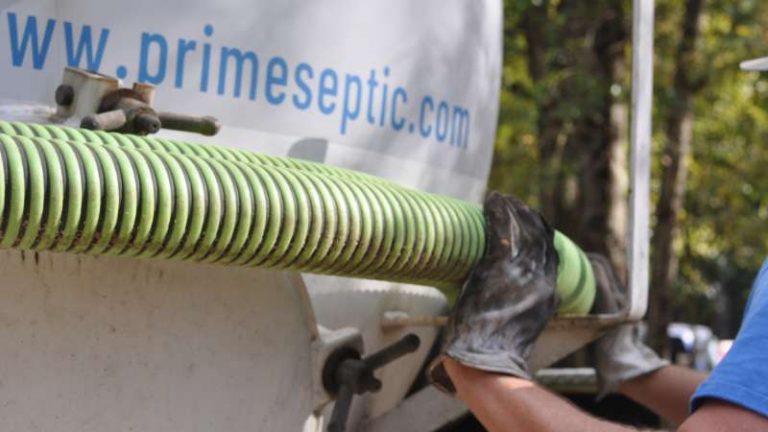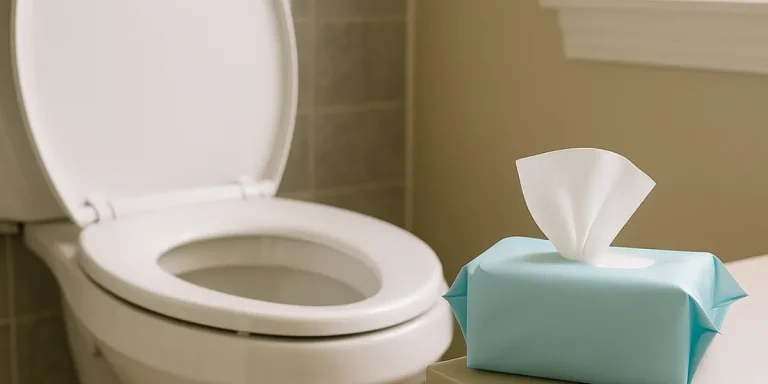Can Septic Tanks Freeze in South Carolina Winters?
In South Carolina, winter usually means a light jacket rather than snow boots — but that doesn’t mean your septic system is immune to cold weather. While freezing septic tanks and pipes are more common up north, we’ve seen enough winter damage here in the Upstate to know it’s worth taking seriously.
At Prime Septic, we help homeowners in Belton and nearby communities prevent and repair septic issues year-round — including cold weather concerns. Here’s what you need to know about freezing risks and how to protect your system when temperatures drop.
Can Septic Tanks Really Freeze in the South?
Yes — although it’s rare, septic tanks and lines in South Carolina can freeze under the right conditions. All it takes is a few consecutive nights of sub-freezing temperatures combined with other risk factors like poor insulation, lack of use, or shallow piping.
Unlike pipes inside your home, your septic components are outdoors and underground. Without enough soil coverage or heat from regular wastewater flow, these parts can become vulnerable during cold snaps.
Common conditions that can lead to freezing:
-
- Infrequent water use (seasonal homes, vacations, guest houses)
- Leaky faucets or running toilets, which create trickling water that freezes in place
- Shallow septic or drain lines, especially in older systems
- Compacted or snow-covered soil that fails to insulate properly
- Uninsulated risers, lids, or exposed pipe joints
When these conditions overlap with even a short South Carolina cold spell, your system can develop ice blockages that cause slow drains, backups, or even full shutdowns.
Signs Your Septic System Might Be Frozen
Septic freezing problems often start subtly, but they can escalate quickly into full system failure if left unaddressed. Catching the early signs can help you avoid costly repairs and health hazards. Here's what to look for during South Carolina's colder months:
Strange Noises, Slow Drains, and Foul Smells
When wastewater struggles to move through frozen or partially blocked pipes, it creates pressure in the system. This often shows up as:
-
- Gurgling toilets or drains, especially when running water elsewhere in the home
- Sluggish or slow-draining sinks, tubs, and showers, with no visible clog
- Sewer gas odors coming from drains or around the tank area
- Bubbling water in the toilet after flushing another fixture
- Inconsistent water levels in toilets or gurgling when appliances run
These signs suggest that wastewater is having trouble flowing into or through your septic tank, which could be due to a frozen inlet line or ice buildup around baffles or risers.
Sewage Backups and Yard Issues
If ice is blocking critical parts of your septic system—like the outlet pipe or drain field lines—your waste has nowhere to go. This can lead to:
-
- Sewage backing up into floor drains, bathtubs, or toilets (especially in basements or lower levels)
- Wet or spongy ground near your septic tank or drain field
- Standing water on the surface of your lawn that has a foul smell
- Visible toilet paper or debris in puddles above the tank or drain field
- Sudden lush grass patches in winter, which may indicate underground leakage
These symptoms are often signs of a frozen tank outlet or compromised drain field, and they require immediate attention to prevent long-term system damage.
If you spot any of these issues, don't wait for it to get worse. Prime Septic offers:
-
- Septic tank pumping and inspections
- Line thawing and camera diagnostics
- Emergency backups and repairs
- Drain field evaluations
- System winterizing and cold weather prep
We proudly serve homeowners and light commercial clients throughout Belton, Anderson, Piedmont, and surrounding areas. Our team is trained to quickly diagnose and fix septic system issues—even in freezing weather.
How to Prevent Septic Freezing in South Carolina
The good news is that freezing septic tanks and lines can almost always be avoided — even in the Upstate — with some basic maintenance and seasonal planning. Here are several practical steps homeowners can take to keep their septic systems protected during colder months.
1. Keep Water Flowing Regularly
The most effective defense against freezing is movement. When water consistently flows into your septic tank, it carries heat that helps maintain a safe internal temperature.
During cold snaps, it’s important to:
-
-
- Run a load of laundry or dishwasher later in the evening, when outside temperatures are dropping
- Avoid long periods of zero usage, such as overnight or during extended absences
- Stagger water-using activities (like showers, laundry, and dishwashing) throughout the day to keep water entering the system in smaller, steady volumes
-
Homes that are vacant for part of the year — such as seasonal residences, vacation homes, or guesthouses — are especially at risk. If your home will be unused for days or weeks, ask Prime Septic about seasonal winterizing services. We can flush the system, inspect for vulnerabilities, and recommend insulation or shutoff strategies that work for your property.
2. Insulate Your Tank and Risers
One of the most vulnerable points in your septic system is the tank lid and riser — especially if it’s above ground or has minimal soil coverage. Cold air can seep into cracks or unsealed risers and cause temperatures to drop inside the tank.
To prevent this:
-
-
- Install septic tank foam insulation around risers and under the lid
- Apply a thick layer (12" or more) of mulch, straw, or leaves over the tank area
- Use insulated access covers specifically made for septic tanks to trap heat
-
If your risers or lids are aging or improperly sealed, Prime Septic can inspect and recommend upgrades to keep your system well-insulated. We offer septic lid replacement, riser sealing, and lid insulation installation as part of our cold-weather service offerings.
3. Avoid Soil Compaction Over the Drain Field
The soil above your drain field acts as natural insulation. When it's compacted, it loses that insulating ability and allows cold to penetrate deeper, increasing the risk of freezing in the pipes below.
To avoid problems:
-
-
- Do not drive or park vehicles over your septic field
- Avoid placing heavy objects like trailers, storage containers, or construction equipment in this area
- Limit foot traffic in icy conditions to prevent disturbing soil structure
-
Compacted or frozen drain fields don’t just pose a winter threat — they can also reduce your system's ability to process wastewater efficiently year-round. If you suspect damage, schedule a drain field inspection with Prime Septic.
4. Address Leaks Promptly
It might seem counterintuitive, but slow leaks can actually increase the risk of freezing. When a toilet or faucet drips continually, it sends a small but steady flow of cold water into the septic system. In freezing conditions, that water can build up and freeze in place, especially in pipes leading to the tank.
What to look for:
-
-
- Toilets that run intermittently or don’t stop after flushing
- Faucets with a constant drip
- Water softeners that regenerate too frequently
-
Fixing these small issues now can prevent major problems later. Prime Septic can assist by coordinating leak detection or referring trusted local plumbers if needed. We also provide septic tank inspections to identify ice plugs, slow flow, or early signs of trouble before they worsen.
What to Do If Your Septic Tank Freezes
Never try to thaw your system using boiling water, space heaters, or fire. This is extremely dangerous and often makes the problem worse.
Instead, call Prime Septic. We’ll diagnose the issue, locate any frozen sections, and use safe, professional methods to thaw the system and restore function. We can also inspect for any damage caused by the freeze and recommend repairs or upgrades if needed.
How Prime Septic Can Help
Our full range of septic services is designed to keep your system running smoothly, no matter the season. We provide:
-
- Septic tank pumping and maintenance
- Septic system inspections and diagnostics
- Septic tank lid insulation and riser sealing
- Drain field evaluations
- Emergency repairs for frozen or backed-up systems
Whether you're planning ahead or dealing with an active issue, you can count on Prime Septic for fast, knowledgeable, and local support.
Proudly Serving Belton and Surrounding Communities
We serve homeowners and businesses in:
If you’re not sure whether your system is at risk, we’re happy to provide a free assessment and recommendations.
Don’t Let Cold Weather Shut You Down
A frozen septic system isn’t just an inconvenience — it’s a potential health hazard.
Protect your home this winter by scheduling an inspection with Prime Septic. Whether you need septic pumping, winterization tips, or emergency help, we’re here to keep things flowing.
Call today or request a free estimate — we proudly serve Belton, Anderson, Greenville, and surrounding South Carolina communities with professional septic care you can trust.

